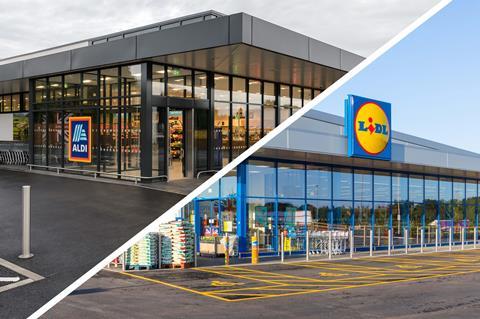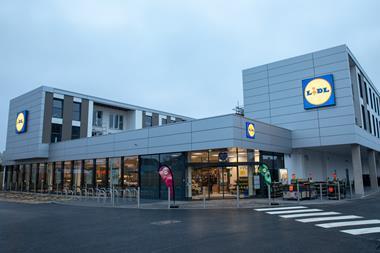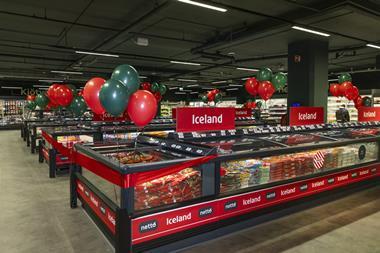
A leading property investment advisor has recommended caution to landlords acquiring new Aldi or Lidl stores, comparing their expansion to the ‘space race’ of the big four in the 1990s and 2000s.
Rob Abraham of Atrato Group, investment advisors to Supermarket Income REIT, said the discounters were reaching the “late phases” of their own space race in the UK, meaning some of their newer stores would “naturally be sub-optimal”.
Abraham was commenting as Supermarket Income REIT, the UK’s largest omnichannel supermarket landlord, announced its annual results on Wednesday, including a 4% average like-for-like rental uplift.
The real estate investment trust owns a £1.8bn portfolio of 73 supermarkets, with Tesco and Sainsbury’s making up the biggest portion but also including Asda, Morrisons, Aldi, Waitrose and M&S sites.
Aldi currently has about 1,020 stores and is aiming for 1,500 in the long term. Lidl has about 960 and has said it sees potential for hundreds more.
However, both have slowed their rate of openings since about 2022, when they aimed for around 50 new stores a year each.
“About 94% of our portfolio already has a discounter within about 10 minutes’ drive,” said Abraham, Atrato’s supermarkets MD. “They’re already on the doorstep of our top-performing Tesco and Sainsbury’s-type assets, so they’re having to look now at secondary locations.
“If new store openings cannibalise any of their existing trade, then actually it’s maybe not that profitable.
“If you look at the late 1990s, early 2000s, in the space race between the big four, they were prioritising market share coming through to 2010 onward. Then there was the realisation that the growth wasn’t actually that profitable and they refocused their strategy on profitability.
“I think we’re in a bit of a space race between the discounters at the moment and I would be very cautious as a landlord in acquiring some of their newer sites, because if we’re in the late phases of their space race then some of those stores will be naturally sub-optimal, which is what we saw for the big four.”
Both discounters have relaxed a default preference for freehold-owned stores to take on more leaseholds as they have grown.
In November last year, Lidl approached investors to fund the construction of 12 stores. The proposed deal included the investor acquiring the freeholds from Lidl, which would then lease the stores back. Lidl has not provided an update on the progress of the pitch.
Abraham said the economics of funding new retail locations made less sense for investors than existing sites, where viability was already established.
“Your risk with a new build is you don’t have that trading history,” he said. “You have to trust that the operator has made the right decision.
“And therefore, you will always want to be compensated for that in a better property yield.”
Aldi rejected the comparison between its expansion and the space race of the big four. It said its stores traded at higher sales density than bigger supermarkets, and it was actively seeking to ease over-trading in certain stores by opening new ones nearby.
It said it did not pursue market share, but customer demand, and that its profitability had returned to industry average levels, showing its strategy was working.
Aldi last week reported pre-tax profits of £536.7m in 2023, up from £152.6m in 2022, with the increase attributed to greater efficiencies across stores and central functions. Its sales increased by 16% to £17.9bn.
Aldi has been speaking to Number 10 about investing in the planning process at local authorities to speed up store openings. The supermarket is targeting 37 new stores throughout 2024, including about 20 between now and Christmas.
However, Aldi’s sales growth has slowed over the past 12 months, with latest Kantar data putting it at 1.3% year-on-year in the 12 weeks to 1 September, and its market share down from 10.1% to 9.9%.
Lidl also rejected Abraham’s comparison, and said its continued sales growth showed it was not at saturation point.
Lidl’s sales were up 9.1% year-on-year in Kantar’s September update, marking its 13th month as the fastest-growing bricks & mortar supermarket. Its market share has climbed from 7.6% to 8%, with analysts pointing to its loyalty app and in-store bakeries in explaining its growth.
Supermarket Income REIT’s rental income increased by 12% to £113.1m in the year to 30 June 2024, as it acquired 20 new assets in the UK and France.
Its portfolio valuation also rose by 5%.



















No comments yet